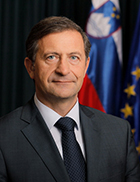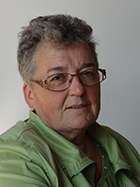Elderly promise
|
In the last 60 years, we have seen a sharp increase in healthy life expectancy, which is an exceptional achievement. Policymakers should see the potential contribution to the betterment of society.
More attention and funding have been devoted to ensure active and healthy ageing in some of the most developed countries. The goal is to use the experience and knowledge of seniors to reduce social and health insurance costs and improve living conditions. Many countries have no clearly defined strategies for protecting older people, other than financing a few preventive programmes for healthy and active ageing, which is proving insufficient.
The situation of older people has deteriorated since the start of the crisis. Pensions are a significant part of some families’ income, particularly those struggling with unemployment. Irresponsible public debates have often depicted pensioners and older workers as a social burden, which seriously endangers the intergenerational solidarity that is essential for the successful functioning of any society.
Slovenia is like many other European countries where the older population is rapidly increasing and is expected to do so for another 15 years. Older workers, whose unemployment rate of about 20%, are among the most vulnerable population groups and a cause for concern.
But in Slovenia, 80% of people over 65 take part in programmes of various NGOs and non-profit organisations and are actively engaged in humanitarian organisations. As part of a special project “Older People for Older People’, volunteers identify older people in need and provide assistance in co-operation with other organisations. Also, a number of active ageing programmes are run according to the principle of self-support by NGOs. For example, the Slovenian Federation of Pensioners' Organisations has 20 000 volunteers who organise 520 societies and clubs active in culture and sports.
Older people can do a great deal to improve the quality of their own lives when they are provided with the right conditions and a bit of support from the government. Older people are an active social group and can contribute significantly to society thanks to their wide range of experience and knowledge. They are certainly willing to be involved.
Slovenia’s civil society is well-organised among older people and this provides the basis for representing and protecting their rights. It guarantees decision-makers will not overlook topics related to older people. Some older people established access to decision-makers in the past but deemed the effort insufficient. As a result, in 1990, a number of pensioners' societies established a political party (DeSUS: Democratic Party of Pensioners of Slovenia) to protect older people’s rights and foster inter-generational co-operation. The party has been represented in parliament and the Slovenian government since 1992.
The older population in Slovenia is active politically and across civil society. Nevertheless, many challenges remain, the greatest being to convince policymakers that older people can contribute significantly to a successful society.
References Slovenia Ministry of Foreign Affairs Visit www.oecd.org/ageingandemploymentpolicies.htm
|
Karl Erjavec,
|
Related Documents



 Mateja Kožuh Novak,
Mateja Kožuh Novak, 